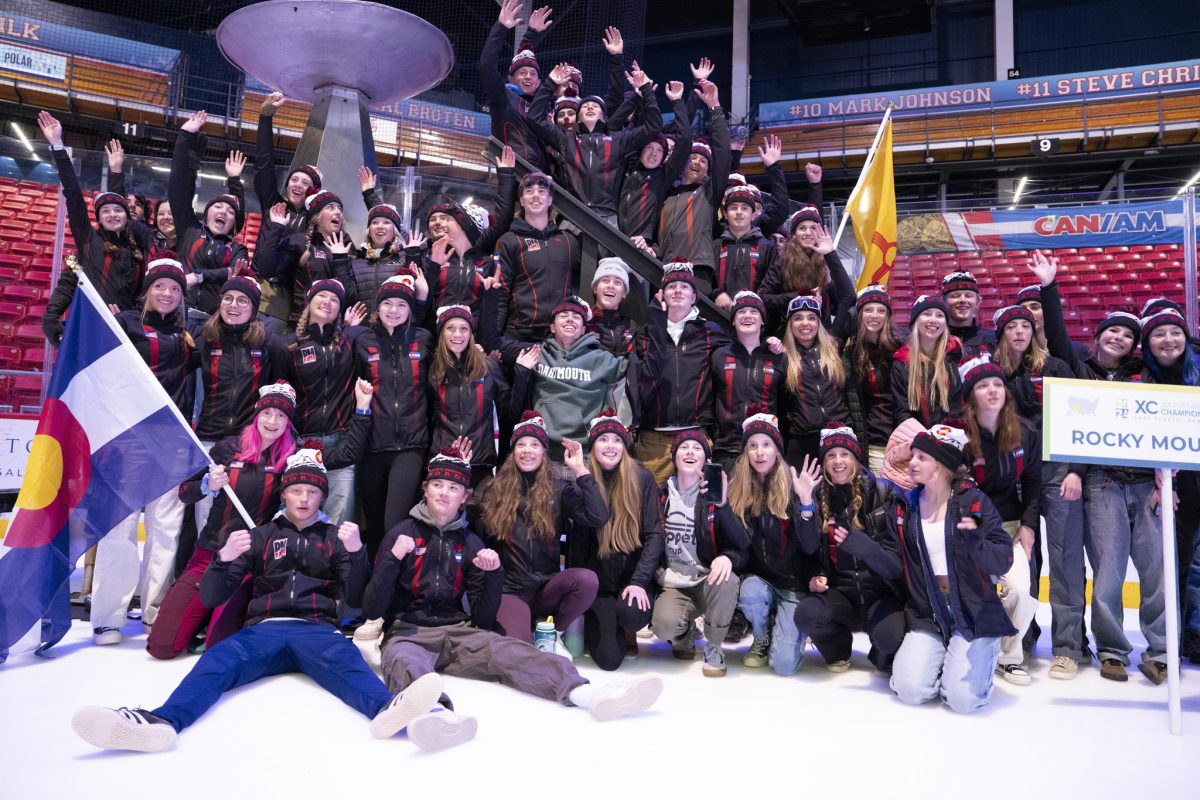
The format and selection procedures at World Youth/Junior Biathlon Championships Team Trials were explained in Wednesday’s report on the sprint races.
A new day, a new format, and only one of four winners was able to remain at the top of the podium in the second day of competition at World Youth/Junior Biathlon Championships Team Trials in Anchorage, Alaska.

That biathlete, Kimberly Del Frate of Alaska Nordic Racing and Alaska Biathlon, did so with aplomb, too: she finished more than three minutes ahead of second-place racer Danika Frisbie of Vermont Collegiate Biathlon in the junior women’s 10 k pursuit. Del Frate was by far the fastest skier in the field, and also had among the best shooting; her six penalties over four stages tied her with Frisbie and Silke Hynes, also of Vermont Collegiate Biathlon.
In a true pursuit, athletes start in the order that they finished in the previous sprint, with time gaps maintained from the final results, and shoot two prone stages and then two standing stages for twenty shots total. As in a sprint, missed shots mean a trip to the penalty loop. In selection races, the U.S. Biathlon Association jettisons the start order and time gaps, maintaining only the distance and shooting format.
So rather than extend an already minute-plus lead from the sprint, Del Frate started 18 of 20 bibs in the youth and junior women’s field, and instead worked her way through her competitors to be the third girl across the finish line. Del Frate’s twin sister Amanda placed third for the second race in a row.
“We’re pretty even,” Kimberly Del Frate said of her sister in a recent profile in Alaska’s channel 11 news. “Sometimes I tend to be a faster shooter, but not necessarily more accurate. I get more nervous when she’s shooting next to me than when other people are because she’s my sister and that competitive sister thing.”

In the youth women’s 10 k race, Wednesday’s winner faced some challenges that ultimately dropped her to last in the field. Tara Geraghty-Moates of Vermont Biathlon and the Craftsbury Nordic Ski Club was having the best pursuit of her life until she cross-fired, or shot on the wrong “point” on the shooting range; she was assessed four penalties for missing her own target, but did not realize that she needed to ski penalty loops because she had hit the targets on the other point.
“This resulted in me getting a two minute penalty [per loop] for the loops I didn’t do, because I thought I had hit four out of five, not none out of five,” Geraghty-Moats told FasterSkier.
“Whoops,” she concluded.
Without the eight minute penalty, the Vermonter would have won handily – by a big enough margin that if she had skied four penalty loops, which typically take 20 to 25 seconds apiece, she still would have chalked up her second victory.
Instead, Vermont Academy racer Mikaela Paluszek picked up her first victory despite missing nine shots, which meant shooting just 55 percent. She edged Nisswa NW’s Jenna Ruzich by twelve seconds; Ruzich had only six penalties. Third place went to Melissa Manning of the Maine Winter Sports Center.

In the junior men’s 12.5 k pursuit, the sprint victor also suffered on the shooting range, although from more usual errors. Geraghty-Moats’ teammate Ethan Dreissigacker racked up ten penalties; while he shot just 50 percent, fellow junior national team member Casey Smith of Methow Valley Biathlon had a nearly perfect day, missing only two shots and collecting a two-and-a-half minute victory. Smith’s huge victory is all the more impressive because it is his first year as a junior, while the next three finishers are in their last year in the age bracket.
Maine Winter Sports Center athletes Raleigh Goessling and Ben Greenwald, both of whom represented the U.S. at last year’s World Junior Championships, finished second and third with seven and five misses, respectively.
The final race, the youth men’s 10 k, was the only one that proved to be a nailbiter. Throughout his race, Sam Dougherty of Alaska Biathlon held the lead. As the previous day’s winner, it didn’t seem surprising – but one minute and two bibs later, Nick Proell of Minnesota Biathlon hit the trails. Both skiers missed two shots in each prone stage, and then Dougherty had one penalty in the initial standing stage while Proell was perfect. In the final stage, Dougherty missed two shots, hit the penalty loop, and jetted off to the finish.
By the time Proell came into the range, he was leading based on splits. If he had cleaned, he would have had an easy victory – but he missed a shot and had to make a pit stop at the penalty loop before finishing.
In the end, the Minnesotan, who is set to compete at the Youth Olympic Games in January, was able to squeak out a five-second win over Dougherty thanks to superior shooting. Jake Prince of Alaska Biathlon finished third with four penalties and a time that was just 22 seconds behind Dougherty’s. All three men were repeat podium finishers for the sprint, meaning that they are virtually guaranteed spots on the World Youth Championships team – unless another racer can pop a big win in Friday’s culminating competitions, another set of sprints.
Full results (Excel spreadsheet)






